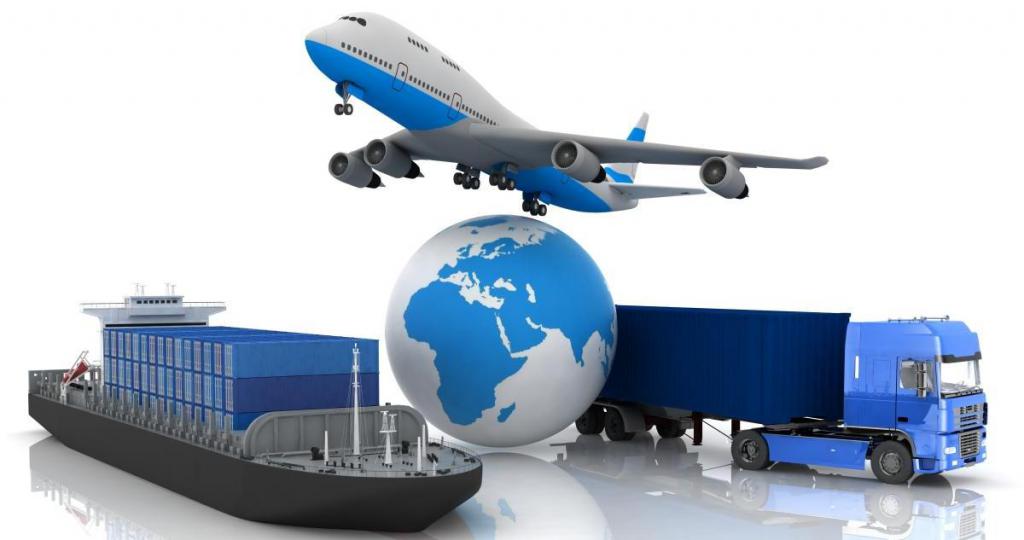Almost everyone uses the unique capabilities of the Internet to obtain the necessary information, communicate with other people, or even to shop. In the latter case, the remote method of acquiring different things or products is used. It is regulated by various legislative acts that protect citizens from receiving defective or defective items. The remote method of selling goods is used by many companies, as it can significantly reduce costs and cover a large number of potential buyers.
Features of the work of firms
For companies, this method of selling different products is considered beneficial. They can sell a variety of items, as well as collaborate with citizens from different cities or countries. Such trading is accompanied by advantages:
- There is no need to open a stationary outlet, so there are no costs for rent, salaries of sellers and registration of a sales room.
- Enormous territory is covered.
- An opportunity is given to significantly expand the target audience.
- Goods can be sent to citizens not only by mail, but also through their own courier service, which allows you to increase the company's revenue.
- You can significantly expand the range, since there are no restrictions on the area of the trading floor.
But each firm that decides to work in this direction should carefully study the rules for selling goods remotely, since if they are violated, this can cause problems with the Federal Tax Service and the Federal Service for Supervision of Consumer Rights Protection and Human Welfare.

Pros for buyers
Even for citizens, the purchase of goods on the Internet has many advantages. These include:
- no need to leave the house for this;
- You can find goods that are not available at stationary retail outlets in a particular region;
- the buyer is protected by various laws from the purchase of low-quality goods;
- within 14 days after receiving the parcel without explanation, you can return the purchase, having received the full price for it;
- online stores offer items at an affordable price, so through such cooperation you can save a significant amount of money.
It is advisable for each buyer to study the Government Decision on the remote method of selling goods in order to well understand all of their capabilities and rights. It is also advisable to analyze other similar laws and documents, which makes it possible to assert your rights.
Legislative regulation
The remote method of selling goods is carried out on the basis of various legislative acts regulating this process. The main documents include:
- Civil Code of the Russian Federation.
- Law No. 2300-1, called “On the Protection of Consumer Rights”.
- Federal Law No. 38 “On Advertising”;
- Federal Law No. 381 “On the Basics of State Regulation of Trade Activities in the Russian Federation”.
- Government Decision No. 612 “On the Approval of the Rules for the Sale of Goods by Remote Method”.
- Letters of Rospotrebnadzor No. 0100 / 10281-07-32 and No. 0100 / 2569-05-32.

All the above acts should be taken into account by each company planning to trade through the Internet. At the same time, an appropriate contract is concluded between the buyers and the company, in which all information about the item being sold is registered.
Content of the decision
Regulated the sale of goods remotely by various laws and acts.Back in 2007, the Government issued a decree on the sale of goods remotely. The main features of this document include the following:
- the relations arising between the buyer and seller when purchasing items via the Internet are regulated;
- it is allowed to sell goods for personal or family needs of citizens, but it is impossible to sell items for entrepreneurial activity;
- the sale of goods prohibited in the Russian Federation, as well as alcohol products, is not allowed;
- each seller must notify buyers about the properties that a particular product has, where it was created, under what conditions it will be delivered, how long it can be used for its intended purpose, and also what is the warranty period;
- Buyers must be notified if the product has been previously used by others;
- the remote way of selling goods is represented by a public offer;
- the seller must notify buyers about how long this offer is valid.
The decision on the approval of the rules for the sale of goods remotely indicates that the agreement will be concluded after the seller receives the check or confirmation of the buyer's intention to purchase any item appears.

Content of the Law “On Protection of Consumer Rights”
The rights of consumers when selling goods remotely are prescribed in this law. The most important process rules include:
- The contract is drawn up only after the buyer receives all the necessary information about the parameters of the purchased product, for which the seller provides him with various descriptions, photographs, booklets and other documents;
- the consumer should know that the company from which he purchases any items is officially registered, therefore he must have information about her place of work, company name, as well as working conditions;
- at the time of delivery of the item, the buyer must receive in writing additional information about the item, and he is notified how and in what time frame can return the product or thing;
- it is possible within 7 days after receiving the goods to refuse it for any reason;
- if low quality of the goods is revealed or it does not correspond to the previously received description, then the return is allowed only if the proper type of purchase is preserved, and there must also be documents confirming the purchase of this item;
- if the buyer loses the check, he can still return the defective goods, but at the same time he must have other evidence of a completed purchase;
- all funds spent on the purchase of an item under the contract are returned, but the seller compensates for its transportation costs.
If a company using the remote method of selling various items refuses to follow the basic rules and requirements of this process, then it can be held liable in various ways. The sale of goods remotely by law is considered official and affordable, but it must be done taking into account the rights of both buyers and sellers.

The nuances of distance trading
Not all people prefer to buy goods on the Internet, since this method has not only pluses, but also significant unusual minuses. The main nuances of such an acquisition include:
- the buyer and seller are not able to contact directly with each other;
- it is impossible to inspect the purchased item in advance, therefore, often for people received packages are a surprise, since they significantly differ from the pictures on the site;
- if the received thing just doesn’t like, then it can be sent back, but it is the buyer in this case that pays for the delivery.
Therefore, usually people prefer to work with trusted online stores that really sell quality things, and also offer loyal terms of cooperation.

What products cannot be sold?
Features of selling goods remotely take into account that there are some items that are not allowed to be sold by this method. These include:
- precious metals and precious stones;
- strategic materials;
- weapons, ammunition, military equipment and spare parts for it, as well as similar goods;
- communication systems or space complexes;
- uranium and products from this material;
- equipment and instruments in which radioactive substances are used;
- research and development results;
- cryptographic equipment;
- poisons, drugs and psychotropic drugs;
- ethanol;
- waste containing precious metals, explosives or radioactive materials;
- medicines, but herbs are the exception;
- technical devices for obtaining information in a secret manner.
The buyer can refuse the goods within 7 days, and even if the product is fully consistent with the information provided by the seller.
What data is provided by the company?
The rules for the sale of goods remotely are that the seller is obliged to inform customers about all the features and properties of the items sold. This data includes:
- item name;
- information on all consumer characteristics, for example, if food products are purchased, then there must be information on its composition, energy value, purpose and methods of use, as well as weight, place of manufacture and other parameters;
- the value of the item in rubles is indicated;
- must contain information about the warranty period;
- conditions are specified on which it is possible to purchase an item;
- rules are indicated on the basis of which you can safely and effectively use the thing;
- information about the seller is recorded, consisting in the full name of the company and its location;
- the buyer must have access to information on the availability of a certificate of quality and compliance;
- the seller notifies when and in what way it will be possible to return the parcel.

The rules for the sale of goods remotely in the Russian Federation indicate that a return is allowed only if the original type of goods is preserved. The presence of any scuffs or other visible violations of the integrity of the item, which indicate that it has already been used for its intended purpose, is not allowed.
How are purchases delivered?
The remote method of selling goods is used by many large or small organizations. They offer their customers various shopping opportunities, which include:
- sending by mail, but this is possible only in relation to small items;
- the use of a courier service owned by the company, but this method leads to the need for the recipient of the item to pay additional significant funds, so the method is chosen when buying expensive products;
- using the services of transport companies, which allows you to send goods in groupage cargoes, and for this, road, water and even air transport can be used.
The most affordable and often used method is the mail delivery method, since in this case the cost of transportation is reduced.

Features of the conclusion of the contract
The sale of goods remotely by law is permitted only when drawing up an agreement between the two parties.
To do this, the buyer must first familiarize themselves with all the characteristics of the purchased item. The seller must receive confirmation of payment, and the buyer - a guarantee of delivery of the goods.Simultaneously with the thing, the citizen receives a document that indicates the main parameters of the subject, its cost and return conditions.
Return Specifics
When selling goods remotely, a return is possible for any reason within 7 days. Further, this process is allowed when defect is detected during the warranty period.
If the warranty period is less than two years, then all the same during this period you can return the defective item.

With such a return, some features are taken into account:
- the item is returned in the same way as it was received by a citizen;
- Before sending, you must send the company a claim stating the reasons for the reluctance to keep the purchase;
- money is transferred back after the seller receives the goods.
There is a possibility of refusal on the part of firms if their employees find that the returned item has certain signs indicating its intended use.
When can I refuse a purchase?
The Law on the Protection of Consumer Rights when selling goods remotely allows you to return any purchased goods, regardless of the reason, within 7 days. Companies cannot refuse this.
Some firms even increase this period to 14 days.
To return, you must maintain the original appearance of the item, and you must also have evidence of its purchase directly in a particular online store. The law permits a refund even in the absence of a check, but there must be other securities that act as proof of purchase on a particular site.

It is best to initially cooperate with various large services that sell only high-quality products, as well as offer their customers truly beneficial and effective conditions for cooperation. Delivery of items can be implemented in different ways, and usually buyers themselves can choose the best method, which determines the additional costs of receiving the package.
Thus, the purchase of goods in various online stores is a popular process that allows each person to find different items that are not available in stationary retail outlets in his city. To do this, it is important to understand the various legislative acts relevant to this process. Additionally, the rules for returning goods, which may not correspond to information received from the seller, are taken into account. In addition, a certain product may simply be defective.
